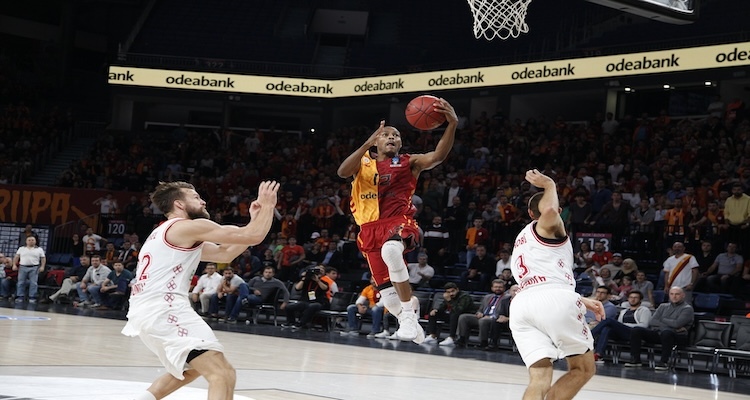
Basketball is a physical sport and many basketball players have emphasized the critical role of physical conditioning in their success on the court. Here are some examples which highlight the importance of staying in top physical condition:
"I put a lot into my body. I've got a chef at home who helps me eat well. I stay away from fried foods and try to eat healthy. Knowing that your body is a temple, and you should treat it like one."
"If I keep my body right, I can play as long as I want."
"I work extremely hard to make sure I’m always in top condition, always going to the gym, always doing something to stay active."
These quotes reflect the mindset of elite basketball players who understand that physical conditioning is a key component of their overall performance, longevity, and success in the sport. They recognize the importance of disciplined training, nutrition, and maintaining their bodies to perform at the highest level throughout their careers.
Basketball is a physically demanding sport that requires a combination of various physical attributes and skills. The specific physical demands of basketball include:
Basketball involves continuous movement up and down the court, requiring players to have good cardiovascular endurance. Players need to be able to sustain high-intensity activity throughout the game.
Quick changes in direction, accelerations, and decelerations are common in basketball. Players need to be agile and have the ability to move rapidly in different directions to navigate the court effectively.
Physical strength is crucial for various aspects of the game, such as driving to the basket, holding off defenders, and playing defense. Players must have strength in their core, legs, and upper body.
Explosive power is essential for activities like jumping for rebounds, making quick vertical leaps for shots or blocks, and executing fast breaks. Plyometric exercises can help enhance power.
Basketball players need flexibility to perform a wide range of movements, including reaching for passes, shooting, and defending. Stretching exercises help maintain flexibility and reduce the risk of injuries.
Maintaining balance while dribbling, shooting, or defending is critical in basketball. Players also need good hand-eye coordination for precise ball handling and passing.
Rapid changes of direction, lateral movements, and quick reactions to opponents' moves require high levels of agility and quickness.
Basketball games are typically divided into quarters or halves, and players need to maintain their performance over the entire duration. Endurance is crucial for sustained effort on both offense and defense.
The sport involves short bursts of intense effort, such as sprinting, jumping, and rapid changes in direction. Anaerobic fitness is essential for these high-intensity activities.
Players often engage in specific training routines to enhance these physical attributes, combining cardiovascular exercises, strength training, agility drills, and skill-specific practices to prepare for the demands of basketball. To improve strength and conditioning for basketball many players will work with a strength and conditioning coach or personal trainer.
Working with a strength and conditioning coach can offer several benefits for basketball players, as they aim to enhance their overall physical performance, reduce the risk of injuries, and optimize their athletic potential. Some specific advantages include:
A strength and conditioning coach can design personalized training programs based on the individual needs, strengths, and weaknesses of the basketball player. This tailored approach ensures that the training aligns with the specific demands of basketball.
A well-structured strength training program can enhance a player's overall strength and power, contributing to improved performance in various aspects of the game, such as shooting, driving to the basket, and defending.
The coach can identify and address potential areas of weakness or imbalance in a player's musculature, helping to reduce the risk of injuries. Strengthening specific muscle groups and incorporating injury prevention exercises can contribute to the player's durability on the court.
A strength and conditioning coach can implement drills and exercises to improve a player's speed, agility, and quickness. These attributes are crucial for navigating the court, defending opponents, and executing fast breaks.
Conditioning drills and cardiovascular training can be integrated into the program to improve a player's endurance, allowing them to sustain high-intensity efforts throughout the course of a game.
Many strength and conditioning coaches provide guidance on nutrition to support the player's training goals. Proper nutrition is essential for optimal energy levels, recovery, and overall performance in basketball.
Coaches can monitor the player's progress, making adjustments to the training program as needed. Regular assessments help ensure that the athlete is continually improving and adapting to the demands of basketball.
In the unfortunate event of an injury, a strength and conditioning coach can work alongside medical professionals to design rehabilitation programs, facilitating the player's safe and effective return to the court.
Coaches often educate players about proper training techniques, recovery strategies, and the importance of rest. This knowledge empowers athletes to make informed decisions about their physical preparation and well-being.
In summary, collaborating with a strength and conditioning coach provides basketball players with a structured and individualized approach to physical preparation. This partnership can contribute significantly to improved performance, injury prevention, and overall well-being on and off the court.
Before embarking on any training programme you should always speak with an expert. If you would like to find a strength and conditioning coach to work with, or another specialist who works on physical aspects of performance such as a yoga teacher then do search our global directory of sports performance specialists.
